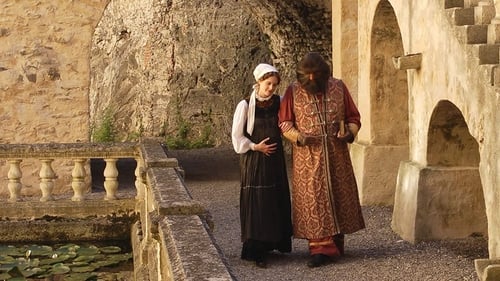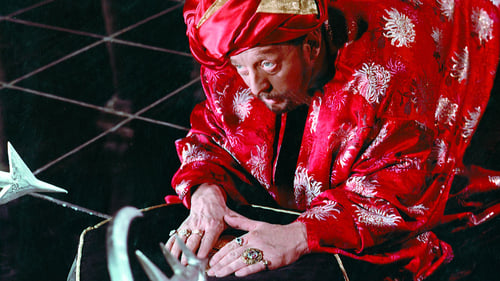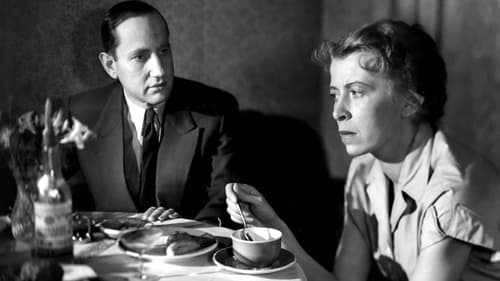Gerhard Klein
出生 : 1920-05-01, Berlin, Germany
死亡 : 1970-05-21

Executive Producer
It's a condition known as "hypertrichosis" or "Ambras Syndrome," but in the 1500s it would transform one man into a national sensation and iconic fairy-tale character. His name: Petrus Gonsalvus, more commonly known today as the hairy hero of Beauty and the Beast.

Editorial Staff

Director
After meeting the woman on the train Erwin Retzmann kills her in the forest.

Writer
After meeting the woman on the train Erwin Retzmann kills her in the forest.

Writer
Four directors - four styles - four episodes, all relating the events of a single night which has entered the history books: August 12-13, 1961. There are thousands of complex narratives connected with the frontier drawn through the middle of Berlin, and each episode relates the story of a difficult decision made on that night...

Director
Four directors - four styles - four episodes, all relating the events of a single night which has entered the history books: August 12-13, 1961. There are thousands of complex narratives connected with the frontier drawn through the middle of Berlin, and each episode relates the story of a difficult decision made on that night...

Director
Berlin in the 1960s. Olaf and Horst are two young metalworkers, who provoke their older colleagues with critiques of the antiquated equipment and lack of materials... not to mention their love of leather jackets and motorbikes. Olaf and Horst begin to be targeted in the house newsletter, and the generational conflict escalates.

High-school senior Peter considers the adults around him to be hypocritical, self-congratulatory, and immersed in the past. He gets suspended for writing an essay that his teachers consider to be a challenge to the state. Just Don't Think I'll Cry became one of twelve films and film projects-almost an entire year's production-that were banned in 1965-1966 due to their alleged anti-socialist aspects. Although scenes and dialogs were altered and the end was reshot twice, officials condemned this title as "particularly harmful." In 1989, cinematographer Ost restored the original version, and this and most of the other banned films were finally screened in January 1990. Belatedly, they were acclaimed as masterpieces of critical realism.

Director

Costume Design
Re-enacted true story of successful assault by Nazis, posing as Poles, on a German border radio station so that Hitler could "justify" thereby his invasion of Poland.

Director
Re-enacted true story of successful assault by Nazis, posing as Poles, on a German border radio station so that Hitler could "justify" thereby his invasion of Poland.

Director
During a weekend spent on the island Hiddensee, the snobbish high school student Jan, who has just been expelled from school, meets Christine. Christine is impressed with his bragging attitude although he just uses it to hide his insecurity and his remorse about the fact that he was sacked. Naturally, he keeps quiet about his current situation. Christine’s companion Hannes is less thrilled about Jan. Later on, the three of them meet again at a dockyard in Stralsund. After the disreputable end of his school career, Jan is assigned to the very brigade in which Christine and Hannes work as a crane operator and a brigadier respectively.

Director

Director

Director
The corner Schönhauser Allee in East Berlin is the main meeting-point for a group of adolescents. Dieter is a construction worker who falls in love with Angela. She, in turn, spends time with the clique whenever her mother is occupied with her new lover. "Kohle" stays away from home to avoid his dad's alcohol problem, and Karl-Heinz is on his way to becoming a small-time criminal. Due to their interest in western music and culture they are regarded as no-goods and rowdies. Things get interesting when an incident forces Dieter and "Kohle" to escape to West Germany. Written by c.winter

Director
Mid-1950s Berlin, before the building of the Wall. Uschi, a salesgirl and aspiring fashion model from the East, is attracted to Hans, from the West. But she also loves the bright shop windows in his part of the city. The flashiness of this new world soon evaporates, however, when Hans loses his job.

Director
Two boys from West Berlin, Klaus and Max, live in poverty. They dream of a career in boxing and save every penny in order to buy boxing gloves for training. Nevertheless, they cannot seem to save enough and so they let themselves be hired by the bartender Klott for a twisted scheme. However, Klaus overhears one of Klott's conversations and learns that Klott intends for the boys to steal horses from the East Berlin Barlay Circus, where Klaus recently made some good friends. Indignant, he sets out to stop the robbery—and an adventurous action story results.

Writer
Documentary short to propagate the positive effects of labour protection laws.

Director
Documentary short to propagate the positive effects of labour protection laws.










